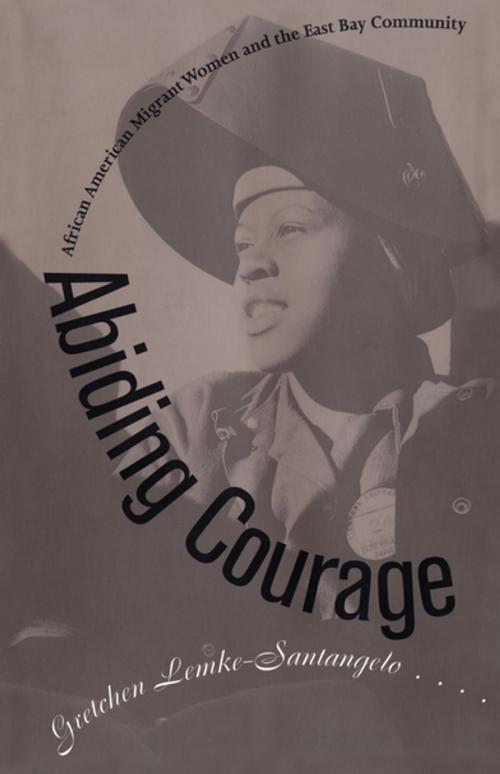Abiding Courage
African American Migrant Women and the East Bay Community
Nonfiction, Social & Cultural Studies, Social Science, Cultural Studies, African-American Studies, Gender Studies, Women&, History, Americas, United States, 20th Century| Author: | Gretchen Lemke-Santangelo | ISBN: | 9780807862841 |
| Publisher: | The University of North Carolina Press | Publication: | November 9, 2000 |
| Imprint: | The University of North Carolina Press | Language: | English |
| Author: | Gretchen Lemke-Santangelo |
| ISBN: | 9780807862841 |
| Publisher: | The University of North Carolina Press |
| Publication: | November 9, 2000 |
| Imprint: | The University of North Carolina Press |
| Language: | English |
Between 1940 and 1945, thousands of African Americans migrated from the South to the East Bay Area of northern California in search of the social and economic mobility that was associated with the region's expanding defense industry and its reputation for greater racial tolerance. Drawing on fifty oral interviews with migrants as well as on archival and other written records, Abiding Courage examines the experiences of the African American women who migrated west and built communities there. Gretchen Lemke-Santangelo vividly shows how women made the transition from southern domestic and field work to jobs in an industrial, wartime economy. At the same time, they were struggling to keep their families together, establishing new households, and creating community-sustaining networks and institutions. While white women shouldered the double burden of wage labor and housework, black women faced even greater challenges: finding houses and schools, locating churches and medical services, and contending with racism. By focusing on women, Lemke-Santangelo provides new perspectives on where and how social change takes place and how community is established and maintained.
Between 1940 and 1945, thousands of African Americans migrated from the South to the East Bay Area of northern California in search of the social and economic mobility that was associated with the region's expanding defense industry and its reputation for greater racial tolerance. Drawing on fifty oral interviews with migrants as well as on archival and other written records, Abiding Courage examines the experiences of the African American women who migrated west and built communities there. Gretchen Lemke-Santangelo vividly shows how women made the transition from southern domestic and field work to jobs in an industrial, wartime economy. At the same time, they were struggling to keep their families together, establishing new households, and creating community-sustaining networks and institutions. While white women shouldered the double burden of wage labor and housework, black women faced even greater challenges: finding houses and schools, locating churches and medical services, and contending with racism. By focusing on women, Lemke-Santangelo provides new perspectives on where and how social change takes place and how community is established and maintained.















